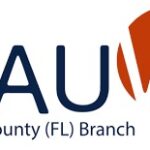During Tuesday night’s City Council meeting, members debated a proposed charter amendment that would impact infrastructure funding and borrowing limits. Concerns were raised about potential unchecked borrowing, with an emphasis on maintaining transparency and responsible financial practices.
Council members noted that the current borrowing limit of $15 million, set 25 years ago, no longer meets today’s infrastructure needs due to inflation. They argued that the existing “pay-as-you-go” system is inefficient and that the city needs the ability to borrow more to address urgent repairs before they become critical.
To address public concerns, a resolution was proposed requiring a supermajority vote—four out of five council members—to approve borrowing over $30 million or entering contracts longer than five years. This measure aims to provide a safeguard, ensuring that significant financial decisions receive broad support.
The discussion also touched on the importance of keeping the public’s right to vote on bond issues. Some council members expressed a desire to maintain this democratic process for future borrowing decisions. The conversation highlighted the council’s commitment to balancing infrastructure needs with fiscal responsibility and public accountability.
Councilwoman Pontieri supported new language for a proposed referendum but acknowledged that due to time constraints and the need for a two-vote process, these changes could not be implemented before the deadline. She raised concerns about the potential expansion and large-scale projects that might require significant borrowing and proposed a resolution for a supermajority vote as a temporary measure.
The council debated whether to proceed with the current ballot language or remove it and wait for a future election to propose new language. Time constraints made immediate changes difficult, but Councilman Klufas and others agreed that the proposed changes would clarify the city’s authority. The discussion concluded with the understanding that if the current language is rejected or removed, the new council could propose an amendment in the future, with Pontieri’s resolution serving as a temporary safeguard.
During the public comment portion, several residents voiced their concerns and opinions on the proposed bond issue and the decision-making process:. Many residents criticized the proposed language as confusing and misleading, suggesting it should be dropped.. One resident questioned the need for increased borrowing authority given the council’s existing power to issue bonds up to $15 million. She emphasized the importance of focusing on critical infrastructure like roads and wastewater treatment. Another expressed skepticism about the need for more funds, referencing past financial statements and questioning the council’s credibility. Some argued that the decision should be left to the new council and that the current council should prioritize immediate infrastructure needs rather than large projects causing fear among residents. Overall, public comments reflected confusion, concerns about financial transparency, and a preference for deferring decisions to the new council.
Councilman Danko made a motion to remove the charter from the ballot, with Councilwoman Pontieri seconding the motion. Both Mayor Alfin and Councilman Klufas voted no, causing the motion to fail. The proposed charter will remain on the ballot.










